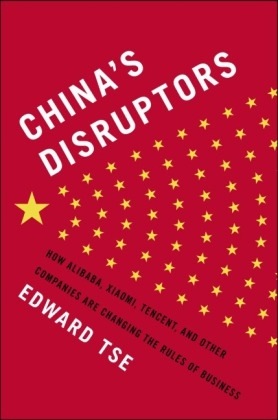
China's Disruptors
Portfolio / Penguin (Verlag)
978-1-59184-833-2 (ISBN)
- Titel nicht im Sortiment
- Artikel merken
AUTHOR'S NOTE Over the last two and a bit decades, based in Shanghai, Beijing, and Hong Kong, and working in many other cities across China, I have had the perfect seat to watch the extraordinary transformation of the world's most populous country from economic also-ran to global superpower. Except, of course, countries don't transform themselves-transformations are wrought by people. This book is about the people who are largely responsible for that transformation. Not the political leaders, who, important as they were in creating the conditions for business to take off, are not directly responsible for economic growth. Nor China's state-owned enterprises, which-contrary to widespread popular belief-have seen their importance in the Chinese economy decline sharply. But, of course, its entrepreneurs-those people who actually set up businesses and grew them by delivering the goods and services that people were prepared to pay for, and in the process creating the jobs that would allow people to buy those goods and services. Throughout this book, I refer to the individuals who run those businesses and the companies they have established as being part of China's private sector. But a brief note of clarification is necessary to explain exactly who I'm talking about, as figuring out how much of China's economy is in private hands-or even what a private business is in China-is far from straightforward. Officially, private businesses have only existed in China since 1988, when the government passed legislation allowing them to exist. That legislation defined a private company as a for-profit organization owned by one or more individuals and employing more than eight people. It is a definition that excludes all those businesses owned and run by individuals that have eight or fewer employees. These are sometimes referred to as individually owned businesses and sometimes as sole proprietorships, and China has tens of millions of them. Also excluded from this definition are the many other Chinese firms that are in effect private. The most numerous of these are "red hat" businesses-companies whose underlying ownership lies with individuals, but which for one reason or another (usually to maintain a relationship with local officials) have registered themselves as collective or state-owned businesses. These companies usually pay a "fee," typically a few percent of revenue, in return for protection from official harassment. A variation on the red hat business is the "rented collective"-a collective business that is rented from its original owners, who more often than not are the local government. A couple of examples show how confused company ownership can be. One of China's most entrepreneurial companies of the last 30 years is white goods maker Haier. Technically, Haier is classified as a collective business under the city of Qingdao, which in theory means that it is owned by its employees and answerable to the Qingdao government. Occasionally, especially in its earlier days, officials would lean on the company to do their bidding; on one occasion Haier took over a money-losing pharmaceutical company in order to keep it running and preserve jobs. While the government may ultimately retain the final say-in the early 2000s, for example, it ruled out the possibility of large collective and state-owned companies being bought out by their managers-Haier's success has left it effectively an independent entity. Over the last 30 years, there can be no doubt that the biggest force determining its destiny has been Zhang Ruimin, its chief executive and board chairman. Ever since he was installed as Haier's head in 1984, it has been his vision and will power that has driven the company forward, not that of its ostensible owners, reflecting just how much, in China, especially in business, power and authority continues to be acquired and held through informal networks rather than legal structures. Huawei,
| Erscheint lt. Verlag | 1.3.2016 |
|---|---|
| Zusatzinfo | illustrations |
| Sprache | englisch |
| Themenwelt | Wirtschaft ► Betriebswirtschaft / Management ► Unternehmensführung / Management |
| Wirtschaft ► Betriebswirtschaft / Management ► Wirtschaftsinformatik | |
| Wirtschaft ► Volkswirtschaftslehre ► Makroökonomie | |
| Schlagworte | Alibaba (Firma) • China; Wirtschaft • Entrepreneurship • Weltwirtschaft |
| ISBN-10 | 1-59184-833-4 / 1591848334 |
| ISBN-13 | 978-1-59184-833-2 / 9781591848332 |
| Zustand | Neuware |
| Haben Sie eine Frage zum Produkt? |
aus dem Bereich


